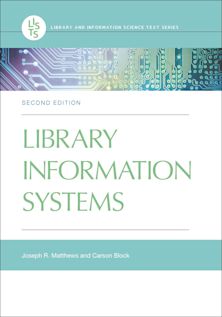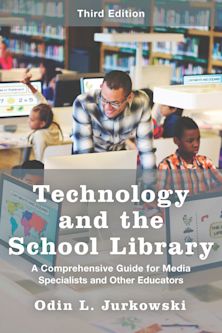- Home
- ACADEMIC
- Library & Information Science
- Information Systems and Technology
- Inventing the Future
Inventing the Future
Information Services for a New Millennium
Inventing the Future
Information Services for a New Millennium
This product is usually dispatched within 10-14 days
- Delivery and returns info
-
Free UK delivery on orders £30 or over
You must sign in to add this item to your wishlist. Please sign in or create an account
Description
Inventing the Future: Information services for a New Millenium is a sequel to Harris and Hannah's 1998 book Into the Future. In this book they move beyond the rhetorical contests about the future of the library and turn their attention to the more prosaic but vital task of managing our ever more complex and constantly changing libraries. The pages in this book present a blueprint that will guide us in the re-visioning of library and information services, allowing us to remain true to our inherited legacy while looking insistently for innovative and effective ways of inventingour future.
Table of Contents
Introduction: The Alexandrian Library Burnt Again
Paradise Lost or Paradigm Found?
Crossing the Postindustrial Divide
Organizing for Change: The Need for the Learning Organization
Envisioning the Future: The Need for a Shared Vision
The Need for a Shared Vision
Libraries and the Monumental Weight of History: Old Visions, New Challenges
Toward the Information Future: Libraries as Knowledge Bases
The New Alexandrian Library: Libraries and Information Management
References
Author Index
Product details
| Published | 06 Jan 2000 |
|---|---|
| Format | Paperback |
| Edition | 1st |
| Extent | 1 |
| ISBN | 9781567504514 |
| Imprint | Praeger |
| Dimensions | 235 x 156 mm |
| Series | Contemporary Studies in Information Management, Policies, and Services |
| Publisher | Bloomsbury Publishing |
About the contributors
Reviews
-
The book is highly readable, and it pulls no punches when it describes what librarians need to do to survive. . . . For libraries starting to deal with change, this book is required reading . . . [it] raises issues that librarians might not be comfortable addressing.
College & Research Libraries



































